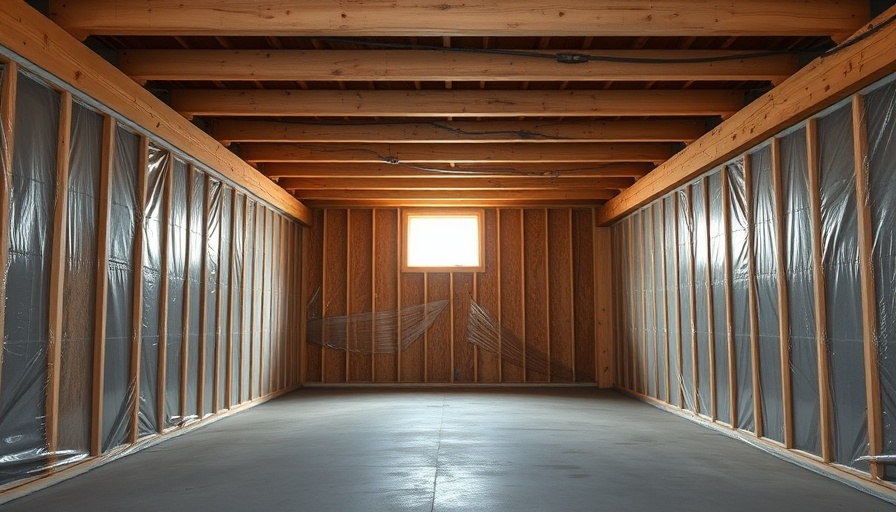
Understanding the Damp Basement Dilemma
If your basement has turned into an uninviting, damp space, you're not alone. Dampness in basements is a common issue that adds stress to homeownership and potential property dealings. Understanding the primary causes of moisture infiltration will help mitigate damage and maintain your property's value, making it crucial information for real estate professionals and homeowners alike.
The Science Behind Basement Dampness
Hydrostatic pressure, the pesky result of water making its way through your soil, is one of the main culprits for damp basements. When heavy rains, melting snow, or high water tables create pressure against your foundation walls, your basement becomes vulnerable. As Cory Patterson from Basement Improvements, LLC aptly describes, "Hydrostatic pressure is what causes dampness and flooding in most basements." The moment a tiny crack appears, you can expect water to come rushing in.
Why Poor Drainage is a Dangerous Game
Poor drainage isn't just a minor inconvenience; it’s a major factor contributing to basement moisture problems. If your home’s drainage systems, such as footing drains and sump pumps, are clogged or malfunctioning, moisture accumulates around your foundation. Newer homes are not exempt from this issue. “Inadequate or old/clogged drainage will often result in a wet basement,” explains Cory. Improper yard grading also plays a significant role; your landscaping should slope away from your home to guide rainwater harmlessly towards the street.
Signs Your Basement is Trying to Tell You Something
Being aware of warning signs can save you significant stress and expenditure down the road. If you notice musty odors, water stains, or mold growth, it’s crucial to take action promptly. Professional inspections can identify subtle issues early on, providing a better chance to address dampness before it exacerbates.
The Cost of Ignoring the Issue
Staying complacent can be a costly mistake. Beyond immediate discomfort and aesthetic concerns, prolonged dampness can lead to severe structural damage. Investment properties, particularly, need to be inspected for moisture problems to avoid reducing market values driven by unforeseen water damage.
Prevention Techniques for Homeowners
Addressing basement moisture issues can involve changing your approach to drainage systems, timely exterior grading, and regular inspections. Various solutions exist, from installing waterproofing membranes to enhancing drainage systems, specifically tailored to manage the water levels around your property effectively. MDC Basement Solutions suggests homeowners also consider landscaping improvements to direct water flow appropriately.
Future Insights for the Real Estate Market
As the real estate market shifts—especially considering the growing relevance of sustainability—damp basements may impact buyers’ perceptions of home health. Thus, understanding and addressing these issues can enhance property value and desirability.
Actionable Steps Homeowners Should Take Now
Identify your basement's moisture problem by conducting regular assessments. Consult with professionals for severe cases, and don’t delay in addressing issues that can be repaired with simple interventions. By taking proactive measures, homeowners can not only preserve the integrity of their property but also avoid decreased valuations in the competitive real estate market.
In conclusion, addressing damp basements promptly can significantly aid in maintaining property values and ensuring living conditions are safe and enjoyable. If you're seeking additional resources and connections to local real estate agents, rental properties, and more, explore reputable platforms like Zillow, Trulia, and Redfin to navigate your real estate options effectively.
 Add Row
Add Row  Add
Add 




Write A Comment